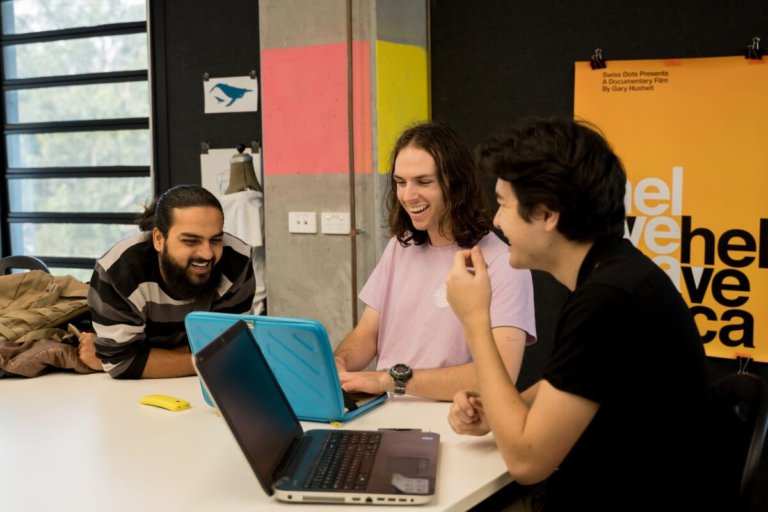
Technological innovation can solve some of the world’s greatest challenges, from testing the physical and mental limits of the human body to advancing global efforts to tackle the climate crisis.
NextMind’s brain-sensing wearable device, for example, is believed to be first tool of its kind that allows devices to be controlled by thought alone.
The practical uses for such a device are staggering to say the least – it could mean the ability to operate heavy machinery just by giving it orders through thought or even restoring mobility to those with disabilities or injuries.
The device, to be showcased at the coming Consumer Electronics Show in January 2020, is just one of the many awe-inspiring innovations expected to wow the global tech community at the annual trade show.
 Also at CES 2020 will be tyre and mobility solution provider Continental, who will introduce its award-winning Transparent Hood innovation which uses an array of four cameras that grants drivers a clear view of the road directly in front of, and below the driver.
Also at CES 2020 will be tyre and mobility solution provider Continental, who will introduce its award-winning Transparent Hood innovation which uses an array of four cameras that grants drivers a clear view of the road directly in front of, and below the driver.
This is yet another innovation to watch, especially for its potential to “greatly reduce the number of accidents where damage is caused to vehicles during parking”, writes futurist, author and tech influencer Bernard Marr in Forbes.
Away from the commercial realm of consumer technology, technological innovations are also touted as capable of helping the world avert the worst consequences of the looming climate crisis.
According to European Investment Bank Vice-President Ambroise Fayolle, new innovations in clean energy and low-carbon technologies are “the only way” to get ahead of climate change.
“In fact, innovation will be absolutely necessary for a successful transition to a green economy that leaves no one behind. Without it, we have less chance of achieving genuine sustainability,” he wrote in a recent commentary for Project Syndicate.
But affecting real-world change is more than just pouring investment dollars into new technologies and business models or embedding innovation as the central pillar of national or regional economic models.
As with anything, it must begin with education.
Fayolle highlights this, saying the education and training models of today must keep pace with technological innovation in order to prepare today’s learners for the unknowable future.
“We should be cultivating the talents and intelligence of our youth, because it is they who will be developing the technologies and creating the jobs needed for the future,” he says.
As the world’s talent incubators, it is the civic responsibility of universities to answer this call to action. And many have risen to the fore, offering future-focussed tech-based courses designed to help the leaders or tomorrow learn the ropes of positive disruption through technological innovation.
Here are four universities leading the way…
SCHOOL OF COMPUTING AND MATHEMATICS, CHARLES STURT UNIVERSITY – AUSTRALIA

Source: Charles Sturt University
Connecting aspiring technological innovators with cutting-edge courses, Charles Sturt University continues to lead the Information Technology (IT) field by being the largest provider of postgraduate IT courses in Australia.
Earning the top spot in the Good Universities Guide 2019/2020, Charles Sturt University has been globally recognised as the best university in Australia for graduate employment.
For postgraduate learners that wish to progress in emerging fields of IT, such as computer networking, network security, software design and development, data science or cyber security, the Master of Information Technology (with specialisations) is the ideal path to take.
Accredited by the Australian Computer Society (ACS), this two-year course opens a variety of career avenues.
From becoming a network security specialist that protects the critical infrastructure of an organisation, to unleashing the power of data as a data scientist, Charles Sturt University offers endless opportunities to all students, plus the chance to secure a regional scholarship.
Located at the Port Macquarie campus, a growing coastal hub in a picturesque setting, international students get to experience an Australian study venture like no other.
With brand new campus facilities, part-time work opportunities and industry-driven postgraduate degrees, start your future in tech with Charles Sturt University.
SCHOOL OF INFORMATION TECHNOLOGY AND MATHEMATICAL SCIENCES, UNIVERSITY OF SOUTH AUSTRALIA – AUSTRALIA
One of the largest information and communications technology providers in South Australia, the School of Information Technology and Mathematical Sciences at the University of South Australia (UniSA) enables students to distinguish between information, knowledge and wisdom, encouraging learners to think outside of the box and challenge accepted ideas and practices.
Through their future-focused programmes and the support of award-winning professors, students create, innovate and develop solutions to real-world problems.
Known for its practical approach, the school’s new Master of Cybersecurity programme allows students to devise and implement a defence strategy for a complex enterprise environment in a final year exercise.
Inspiring students to join a growing industry and teaching them how to protect critical IT infrastructure and information, technical topics such as web and cloud security, network security, digital forensics, identity management and access control.
Home to several research centres, learners may also be influenced by research revelations from the Advanced Computing Research Centre, the Centre for Industrial and Applied Mathematics, the Institute for Telecommunications Research, the Phenomics and Bioinformatics Research Centre and the Defence and Systems Institute.
SCHOOL OF ELECTRICAL ENGINEERING, COMPUTING AND MATHEMATICAL SCIENCES, CURTIN UNIVERSITY- AUSTRALIA
Providing courses that have been developed in consultation with IT industry experts, and accredited by the Australian Computer Society (ACS), the School of Electrical Engineering, Computing and Mathematical Sciences at Curtin University stays ahead of the tech trends.
During their go-to Master of Computer Science course, students begin to understand the fundamentals of computer architecture and organising, storing and retrieving data; plus they learn how to identify software security problems in specialised client systems.
And with technological innovation rising from all corners of their campus, the university features the Green Electric Energy Park (GEEP).

Source: Curtin University
A unique, state-of-the-art facility that supports the university’s commitment to excellence and innovation in teaching and research in sustainable development, GEEP produces futuristic power-system concepts based on environmentally friendly, renewable energy technologies.
Sharpening skill sets and continually producing job-ready computing experts, postgraduate students at Curtin are always supported to take their career in whichever direction suits them best through work-integrated learning and design thinking.
SCHOOL OF ENGINEERING AND COMPUTER SCIENCE, VICTORIA UNIVERSITY OF WELLINGTON- NEW ZEALAND
Readying students for successful careers at the forefront of new and exciting global technology, the School of Engineering and Computer Science at Victoria University of Wellington (VUW) in New Zealand values innovative and agile thinkers.
Established in response to a growing need for fully qualified graduates in digital technology fields, the school attracts students that enjoy problem-solving, building projects and understanding how new technologies work.
Pairing students’ interests to a range of competitive postgraduate qualifications in engineering and computer science, the school’s programmes support new graduates, experienced professionals and those who are looking for a career change.
The school’s location is another key part of student life here, as Wellington (NZ) became the 2nd best city in the world for its tremendous quality of life according to the Deutsche Bank Mapping the World’s Prices 2019 report and also scored 1st in 2018 for its first-rate lifestyle opportunities.
Complete with a multicultural community, booming technology industry and start-up culture, Wellington is also a great place to work after you’ve completed your Master’s studies at VUW.
*Some of the institutions featured on this article are commercial partners of Study International
Liked this? Then you’ll love…
RMIT: Redefining the meaning of innovation in design studies
Ensuring Innovation: Universities producing job-ready science graduates







